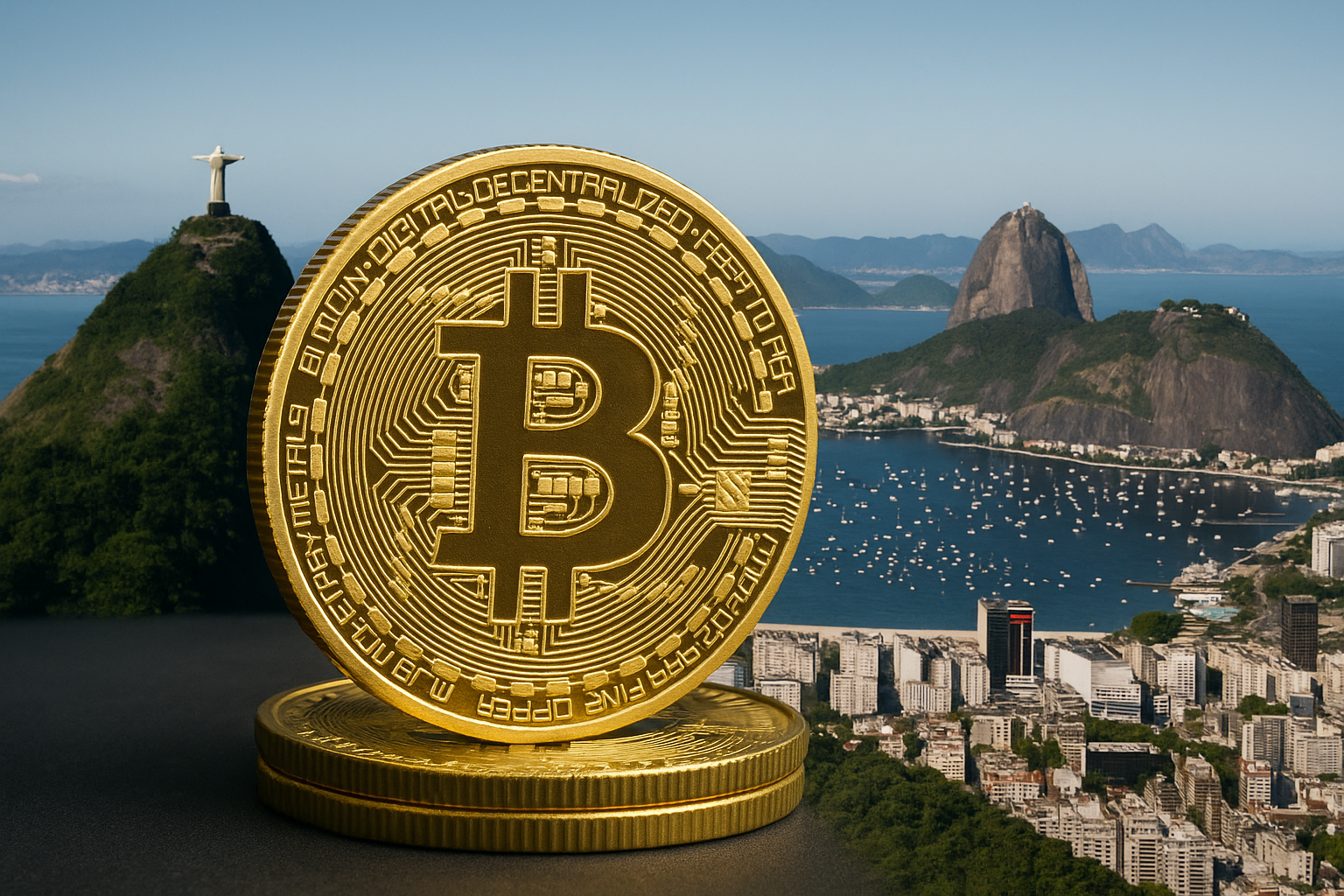
Brazil is taking center stage in the global financial landscape as it explores integrating Bitcoin into its sovereign reserves. Next month, Rio de Janeiro will host one of Latin America’s most pivotal financial events—the Central Banking Autumn Meetings. This gathering is set to spark discussions on the growing role of digital assets, particularly Bitcoin, in strengthening national reserves.
Brazil’s Bold Bitcoin Initiative
With lawmakers proposing a $19 billion Bitcoin reserve, Brazil aims to establish itself as a leader in digital finance within the region. This comes as central bankers and policymakers from countries like Colombia, Jamaica, and the Bahamas join Brazil to debate how cryptocurrencies could serve as strategic financial assets. Topics such as volatility, liquidity, and the use of Bitcoin as a hedge against inflation will headline the discussions.
Brazil’s exploration of a sovereign Bitcoin reserve underscores its ambition to diversify national holdings. This marks a significant shift in financial strategy, moving away from traditional assets like gold and foreign currencies to embrace digital alternatives. With inflation and currency volatility frequently disrupting global markets, Bitcoin is increasingly seen as a viable countermeasure.
The Drex CBDC: A Step Toward Digital Integration
Brazil’s central bank isn’t just focusing on Bitcoin. The country is also advancing its own digital currency initiative, the Drex CBDC, designed as a tokenized Brazilian real. According to experts, Drex could form the foundation for integrating blockchain technology into the nation’s financial system. This initiative supports interoperability between fiat and digital systems, potentially paving the way for Bitcoin to function as a future reserve tool.
However, there are challenges. Safeguarding digital reserves, maintaining transparency, and addressing accounting standards remain pressing concerns for central banks worldwide. Brazil’s push for a $19 billion sovereign Bitcoin reserve will undoubtedly face scrutiny, but it also positions the country to lead digital innovation across Latin America.
A Wider Global Shift
Brazil’s exploration mirrors a global trend. In the United States, officials are toying with the idea of a strategic Bitcoin reserve, while Germany’s second-largest political party has proposed integrating Bitcoin into national strategies as protection against inflation. Similarly, countries like Pakistan and the Philippines are considering recognizing Bitcoin as an official strategic asset.
The inclusion of digital assets into sovereign reserves represents a paradigm shift. What was once considered speculative is now evolving into formal policy discussions. Brazil’s role as a host for this debate highlights its growing influence in shaping future economic models for the region.
eToro: Explore Cryptocurrency Investment
For individuals looking to capitalize on the cryptocurrency momentum, platforms like eToro offer a way to invest in Bitcoin and other digital currencies. Known for its user-friendly interface and secure transactions, eToro allows users to diversify their portfolios with ease. Always remember to invest responsibly, as cryptocurrencies can be highly volatile.
The Road Ahead
While no immediate policy changes are expected at the Rio meetings, the conversations will likely shape the trajectory of digital finance across Latin America. Brazil’s leadership in hosting these discussions places it as a driving force in the global adoption of cryptocurrencies, potentially setting new standards for national reserve strategies. The future of Bitcoin in sovereign reserves could redefine how economies navigate inflation and financial stability, bringing us one step closer to a digital financial revolution.






